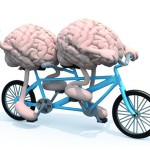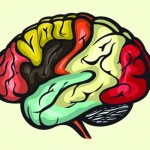 January 19, 2016 4:38 pm
Published by Blair Kirchner
January 19, 2016 4:38 pm
Published by Blair Kirchner
October 6, 2015 ~ Written by: W.B. “Bud” Kirchner “When you take risks, you are reminded in the most insistent manner that you have a body.” ~ John Coates Some would call this next statement a risk – but I wouldn’t: If the following doesn’t capture your attention around the...
 January 19, 2016 4:23 pm
Published by Blair Kirchner
January 19, 2016 4:23 pm
Published by Blair Kirchner
October 1, 2015 ~ Written by: W.B. “Bud” Kirchner “There is more wisdom in your body than in your deepest philosophies.” – Friedrich Nietzsche Okay, let’s use this to set the stage for following three posts which continue to reflect our Business Brain Model℠ and its premise that it serves as context of how to...
 January 19, 2016 3:49 pm
Published by Blair Kirchner
January 19, 2016 3:49 pm
Published by Blair Kirchner
July 12, 2015 ~ Written by: W.B. “Bud” Kirchner “The important thing is not to stop questioning. Curiosity has its own reason for existing.” ~ Albert Einstein It is (beyond) interesting to me that I have been asked the same question by three constituencies. The constituencies: Myself. People close to me. Readers of this resource....
 January 19, 2016 3:26 pm
Published by Blair Kirchner
January 19, 2016 3:26 pm
Published by Blair Kirchner
The brain is made of the forebrain, midbrain and hindbrain. The forebrain contains the cerebrum, thalamus and hypothalamus (part of the limbic system). The midbrain, housing the tectum and tegmentum (and connecting the brainstem to the thalamus), is involved in input from senses. The hindbrain consists of the cerebellum, pons and medulla. The midbrain, pons and medulla, all together, are usually called the brainstem or hindbrain.
 January 19, 2016 3:09 pm
Published by Blair Kirchner
January 19, 2016 3:09 pm
Published by Blair Kirchner
Today, I am thinking about the contrasts that stimulated me to write this collection of information: illustrating the disconnect of what science knows, in the context of the Business Brain Model (neuroscience, psychology and related cognitive sciences), and what business actually does in practice.
 September 15, 2015 6:30 pm
Published by Blair Kirchner
September 15, 2015 6:30 pm
Published by Blair Kirchner
It is important to note – not all biases are irrational. Indeed biases may be completely rational yet still produce thinking errors and undesirable outcomes.
 September 15, 2015 5:48 pm
Published by Blair Kirchner
September 15, 2015 5:48 pm
Published by Blair Kirchner
“A cognitive bias is a genuine deficiency or limitation in our thinking – a flaw in judgment that arises from errors of memory, social attribution and miscalculations (such as statistical errors or a false sense of probability).” ~ George Dvorsky
 September 15, 2015 4:55 pm
Published by Blair Kirchner
September 15, 2015 4:55 pm
Published by Blair Kirchner
I suppose it is possible, after reviewing the list of biases that I have flagged (Part Two of this series, "The Ironic Magnitude of Cognitive Biases") as most likely (and perhaps) even after my reference in that post to there being about 150 identified cognitive biases, that someone should conclude it’s not that much to worry about.








